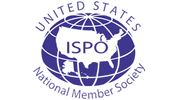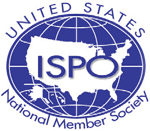The US ISPO Member Society in the United States was established in 1972.
US ISPO is a resource for the multidisciplinary professionals interested in promoting care of people with physical disabilities in the United States and beyond the geographical borders of the U.S.
US ISPO holds meetings in the continental United States (Skills for Life), the Caribbean (Caribbean Rim conference) and in the islands of Hawaii (Pac Rim conference). US ISPO also partners with other professional organizations to advance knowledge through the comprehensive team approach to physical rehabilitation.
US ISPO is a resource for the multidisciplinary professionals interested in promoting care of people with physical disabilities in the United States and beyond the geographical borders of the U.S.
US ISPO holds meetings in the continental United States (Skills for Life), the Caribbean (Caribbean Rim conference) and in the islands of Hawaii (Pac Rim conference). US ISPO also partners with other professional organizations to advance knowledge through the comprehensive team approach to physical rehabilitation.
We are a society of the greater ISPO.
The International Society of Prosthetics and Orthotics (ISPO) was founded in Copenhagen, Denmark in 1970 by a group of surgeons, prosthetist-orthotists, physiotherapists, occupational therapists and engineers to promote improvements in the care of all persons with neuromuscular and skeletal impairments.
ISPO is a Non-Governmental Organization in Special Consultative Status with the Economic and Social Council of the United Nations, and is in Official Relations with the World Health Organization. ISPO presently has 3500 members worldwide in over 80 countries. Where there are more than five members in any country, or region, they may band together to form a National Member Society. National Member Societies have been established in 35 countries. It is beneficial to form National Member Societies due to the representation and voice gained within the governing structure of the Society.
ISPO is a Non-Governmental Organization in Special Consultative Status with the Economic and Social Council of the United Nations, and is in Official Relations with the World Health Organization. ISPO presently has 3500 members worldwide in over 80 countries. Where there are more than five members in any country, or region, they may band together to form a National Member Society. National Member Societies have been established in 35 countries. It is beneficial to form National Member Societies due to the representation and voice gained within the governing structure of the Society.
EDUCATION
To facilitate and enhance the educational efforts of all health care disciplines involved in prosthetics and orthotics throughout the world. Information exchange and dissemination is achieved through
SERVICE
To provide, upon request, consultation and expertise to areas where the need for development of prosthetic and orthotic services has been identified. Teams
STANDARDS
To compile and review standards which govern the practice of the professions concerned with prosthetic and orthotic care throughout the world. Guidelines are established through:
ADVOCACY
To raise awareness of the Prosthetics & Orthotics professions and the value of access to high-quality assistive health technologies is a strategic priority.
ISPO is striving to increase the recognition of the Prosthetics & Orthotics and rehabilitation profession, drive policy development in the Prosthetics & Orthotics and rehabilitation field, and develop and implement Prosthetics & Orthotics standards. These goals are to be achieved through key strategic advocacy measures.
RESEARCH
To facilitate and encourage research which will improve the quality of products and services provided to persons in need. Support is given to recent developments such as
To facilitate and enhance the educational efforts of all health care disciplines involved in prosthetics and orthotics throughout the world. Information exchange and dissemination is achieved through
- World congresses
- Instructional courses
- Conferences
- Publications
SERVICE
To provide, upon request, consultation and expertise to areas where the need for development of prosthetic and orthotic services has been identified. Teams
- Appraise and recognize schools and facilities
- Help develop clinical programmes
STANDARDS
To compile and review standards which govern the practice of the professions concerned with prosthetic and orthotic care throughout the world. Guidelines are established through:
- Educational symposia
- Curriculum updating
- Material and product evaluation and classification
- Consensus conferences
ADVOCACY
To raise awareness of the Prosthetics & Orthotics professions and the value of access to high-quality assistive health technologies is a strategic priority.
ISPO is striving to increase the recognition of the Prosthetics & Orthotics and rehabilitation profession, drive policy development in the Prosthetics & Orthotics and rehabilitation field, and develop and implement Prosthetics & Orthotics standards. These goals are to be achieved through key strategic advocacy measures.
RESEARCH
To facilitate and encourage research which will improve the quality of products and services provided to persons in need. Support is given to recent developments such as
- Computer Aided Design (CAD) and Computer Aided Manufacture (CAM)
- Optical shape sensing
- Socket design
- Locomotion Studies

